Archive for March 17th, 2010
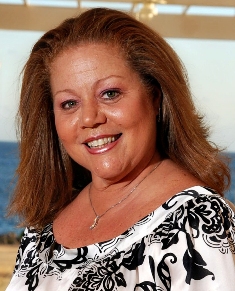
Local wedding planner joins US A’ list
 (CNS): The CEO of Cayman’s Celebrations has plenty to celebrate after she was been recognized as one of the 2010’s A-List Planners by US Magazine, Destination Weddings & Honeymoons. Jo-Anne Brown, Celebrations’ founder, CEO & designer, has made it to the magazine’s list which recognizes the industry’s top experts around the world. Brown’s inclusion on the list with celebrity international planners offers a fantastic boost to the local business. It also offers encouragement for the tourism sector as a whole as it is likely to help the Cayman Islands attract more destination weddings.
(CNS): The CEO of Cayman’s Celebrations has plenty to celebrate after she was been recognized as one of the 2010’s A-List Planners by US Magazine, Destination Weddings & Honeymoons. Jo-Anne Brown, Celebrations’ founder, CEO & designer, has made it to the magazine’s list which recognizes the industry’s top experts around the world. Brown’s inclusion on the list with celebrity international planners offers a fantastic boost to the local business. It also offers encouragement for the tourism sector as a whole as it is likely to help the Cayman Islands attract more destination weddings.
Susan Moynihan, Editor-in-Chief stated in an email to Jo-Anne that she was thrilled she was in the programme as brides need people they can trust. “And that’s you!” wrote Moynihan.
Brown said it was a great honor to be named as one of the 30 A-List Planners in the world. “Being among this group of top destination wedding planners, including the likes of celebrity wedding planner, Preston Bailey, Marcy Blum, Colin Cowie, David Tutera and Mindy Weiss is truly an honor,” she said.

UK coming to work on plan
 (CNS): A team from the Foreign and Commonwealth Office in London will be visiting the Cayman Islands next week in order to work with government on a three-year plan to get the country’s finances back on track, the Governor’s Office has announced. Following the discussions held in London last week with the Cayman Islands delegation and Colin Roberts, Director of the Overseas Territories Department, the UK is now reportedly sending an economic squad to help government put together a long term budget strategy.
(CNS): A team from the Foreign and Commonwealth Office in London will be visiting the Cayman Islands next week in order to work with government on a three-year plan to get the country’s finances back on track, the Governor’s Office has announced. Following the discussions held in London last week with the Cayman Islands delegation and Colin Roberts, Director of the Overseas Territories Department, the UK is now reportedly sending an economic squad to help government put together a long term budget strategy.
The UK’s representatives will conduct an economic review, according to a statement released by the Governor’s Office, and will also discuss with the financial secretary and his team the draft three-year plan to deliver sustainable public finances, which could be presented with the budget for 2010/11 in April. “The plan will need to feature measures to reduce public spending to an affordable level; a properly costed strategy for managing public assets, perhaps including private finance initiatives; a clear estimate of borrowing requirements; and possibly new measures to broaden the revenue base,” officials from the Governor’s Office said.
As a result of the London talks and in view of the financial situation that the Cayman Islands finds itself in, the UK meetings had concluded with an agreement for swift action, especially in light of the Miller Report’s findings.
With major government expenditure cuts needed to be taken in order to bring public spending back onto a sustainable track, the UK has offered to assist in the development of the three year strategy that will address the current levels of expenditure and borrowing, as it it has been agreed by both the UK and the CIG that they are not sustainable.
“The FCO and the Governor welcome the commitment made by the Premier to bring public expenditure back onto a sustainable track. The FCO recognises that decisions on exactly how to achieve this must lie with the Cayman Islands Government but undertakes to do what it can to help,” the statement from the Governor’s Office said.
The premier said on Monday that he had presented the Miller Report to the UK, and although it was disappointed that it had not recommended any new sustainable revenue measures, it was willing to allow the CIG to improve finances through cuts rather than taxes, as well as the sale of assets.
Bush also said that the UK had agreed to any necessary borrowings at the end of this financial year to balance the 2010/11 budget provided the government comes up with this long-term financial strategy to get finances back in line with the requirements of good fiscal management.
During Monday’s press briefing, the premier said that the CIG would be reporting back to the FCO on the three-year budget plan but he did not mention that the FCO would be coming to assist in its preparation.
CNS note: While it is true that a team from the FCO does make an annual visit to the BOTs, including the Cayman Islands, the Governor’s Office was clear in its press release that on this trip they will be working with government on a three-year plan to get the country’s finances back on track. The Governor’s Office has confirmed that this CNS article is accurate. To read the full release from the Governor’s Office click here.

Sales up but revenue down for water company
 (CNS): The company which supplies the residents of West Bay with their water has reported a 12% decline in revenues for 2009. Consolidated Water Co. Ltd reported its operating results for the quarter and year end 31 December 09 yesterday saying the decline was due to a reduction in energy costs passed through to the Company’s customers as a result of lower energy prices, along with lower project construction activity in the Services business segment. Revenues fell, the firm said, from $65.7 million in 2008 to around $58 million last year. Rick McTaggart, Chief Executive Officer said despite the revenue fall the firm broke records for 2009.
(CNS): The company which supplies the residents of West Bay with their water has reported a 12% decline in revenues for 2009. Consolidated Water Co. Ltd reported its operating results for the quarter and year end 31 December 09 yesterday saying the decline was due to a reduction in energy costs passed through to the Company’s customers as a result of lower energy prices, along with lower project construction activity in the Services business segment. Revenues fell, the firm said, from $65.7 million in 2008 to around $58 million last year. Rick McTaggart, Chief Executive Officer said despite the revenue fall the firm broke records for 2009.
In the results statement the firm said retail water sales did however rise by 4% versus the previous year, reflecting an increase in volume of water delivered to customers. Bulk water revenues decreased 14% to approximately $25.9 million, compared with $30.1 million in 2008, as a 2% increase in water volume was more than offset by a reduction in energy costs passed through to customers. Services revenues decreased 33% to approximately $8.9 million in 2009, compared with approximately $13.2 million in 2008, reflecting a decline in project construction activity that was partially offset by fees from the Company’s services contract for the Tynes Bay plant in Bermuda, which commenced in the second quarter of 2009.
“Net income declined 15% to $6,098,571, or $0.42 per diluted share, in the year ended December 31,” Consolidated Water reported adding this was primarily the result of operating and impairment losses recorded by the Company for its equity in the results of its affiliate, Ocean Conversion (BVI) Ltd.
"Exclusive of the impact upon profitability of our equity in the loss of our 43.5%-owned OC-BVI affiliate in the British Virgin Islands, earnings from our consolidated operations improved to record levels in 2009, an achievement of which we are very proud, especially in light of the softness in global economic conditions," said noted Rick McTaggart, Chief Executive Officer of Consolidated Water Co. Ltd. "This was due to higher gross profits in each of our three business segments. Retail Segment gross profits benefited from a reduction in certain operating and maintenance costs, lower energy prices and increases in base water rates. Meanwhile, higher gross profits in our Bulk Segment resulted primarily from the expiration of the original contract for the Red Gate plant in the Cayman Islands and the elimination of amortization expense for the intangible asset associated with such contract, improved operating efficiencies at our Windsor plant in the Bahamas, and the implementation of an improved feed water pretreatment regime at our Blue Hills plant in the Bahamas.”
McTaggart pointed to the completion of two new plants in Cayman – the North Side plant which handles 2.4 million US gallons per day and the new ACWW plant, formerly known as the Governor’s Harbor plant handling 1 million US gallons per day.
“That increased our installed capacity in Grand Cayman by 30% and our overall water production capacity by more than 11%. We also began operating the new 700,000 US gallon per dayBar Bay plant in Tortola (BVI) in January 2009 under a Heads of Terms agreement which helped to offset some of our losses from OC-BVI, and obtained a definitive final contract for this plant in March 2010" he explained.
The CEO added that the Eastern Caribbean Supreme Court held a three-day trial in July to address the Baughers Bay ownership issue and OC-BVI’s claim for payment of amounts owed for water sold and delivered to the BVI Government.
“On September 17, … the Court issued a preliminary ruling that the BVI Government was entitled to immediate possession of the Baughers Bay plant and dismissed OC-BVI’s claim for compensation related to costs associated with an expansion in production capacity. As a result of this preliminary ruling, OC-BVI recorded an impairment charge of approximately $2.1 million for fixed assets associated with the plant. After conducting additional hearings in October 2009, the Court ordered the BVI Government to pay OC-BVI $13.91 per 1,000 imperial gallons (approximately $10.3 million) for water produced and delivered to the Government,” he explained
OC-BVI has since appealed the Court’s ruling regarding compensation for expenditures made to expand production capacity, and the BVI Government has appealed the ruling that the Government pay OC-BVI $10.3 million for water produced.
“These appeals are currently before the Eastern Caribbean Court of Appeals. While losses related to our investment in OC-BVI continued to significantly impact our total earnings in 2009, the Court judgment in October and recent events that appear to have determined the eventual fate of the Baughers Bay plant should cause these losses to be significantly reduced or eliminated in the future," McTaggart added.
Looking forward he said the firm had many reasons to be optimistic about enhancing shareholder value in coming years.
"Bidding activity regarding new projects was quite busy in 2009, but none of the projects were awarded before year-end. We bid on three projects with a combined capacity of 25 million US gallons per day, demonstrating continued opportunities available to the Company and growing demand for desalinated water in the Caribbean region,” McTaggart said.
Meanwhile, the firm is looking at new opportunities in Trinidad and Tobago which is expected to go out to bid this year along with other “exciting opportunities” which the CEO said was being actively pursued in existing and new markets.

Police issue warning after overnight break-ins on 7MB
 (CNS): Following a number of burglaries and attempted break-ins along Seven Mile Beach overnight officers from the Royal Cayman Islands Police are urging people to make sure that they lock their doors and windows before going to bed. Between 1.00am and 2.45am this morning, Wednesday 17 March the Grand Cayman Beach Suites, the Westin and Silver Sands Condos were targeted by burglars. Police said in all of the incidents they had got inside the various premises as a result of unsecured doors or windows. Police described two of the men that may have been involved in at least one incident as slim build, dressed in Black and around 5’9’, while a third was wearing a pink top.
(CNS): Following a number of burglaries and attempted break-ins along Seven Mile Beach overnight officers from the Royal Cayman Islands Police are urging people to make sure that they lock their doors and windows before going to bed. Between 1.00am and 2.45am this morning, Wednesday 17 March the Grand Cayman Beach Suites, the Westin and Silver Sands Condos were targeted by burglars. Police said in all of the incidents they had got inside the various premises as a result of unsecured doors or windows. Police described two of the men that may have been involved in at least one incident as slim build, dressed in Black and around 5’9’, while a third was wearing a pink top.
Police said that shortly after 1.00 am they received the first report that a storage area at the Grand Cayman Beach Suites had been broken into. It is not yet known what has been stolen. Then at about 2.20 am a man who was staying at the Westin awoke to find two men in his room. The men ran off empty handed. A short time later police received a report that 2 cell phones and a small amount of cash had been taken from a condo within Silver Sands.
Around the same time, a second condo in the complex was targeted and a woman awoke to find a man rummaging through her purse. She struggled with the burglar and he made off with a smallamount of cash. During the struggle the victim sustained slight hand injuries, but did not require any medical attention.
“Today officers will be meeting with the condominium owners to reinforce the need for guests to make sure that they keep doors and windows closed and secured,” said Inspector Dane Pinnock of West Bay. “It is tempting, particularly on humid nights, to leave windows and doors open – however we need to work together to cut down the opportunities available for thieves on the island.”
Detective Sergeant Winsome Prendergast, the officer investigating the incidents, described the men believed to have broken into the Westin as slim build, dressed in black and about 5’9” in height.
“The male who was disturbed at the Silver Sands appears to have been wearing a pinkish coloured sweatshirt,” she said. “We are conducting scenes of crime examination and talking to people within the complexes to find out if they have any information which could assist us.”
Anyone with information can call George Town CID on 949-4222, alternatively they can call Crime Stoppers on 800-8477 (TIPS).
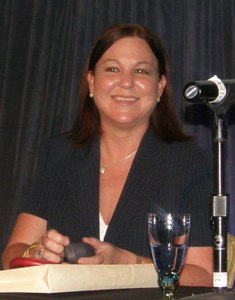
Young politicians to discuss government plans
 (CNS): Members and supporters of the Young Union Democratic Party (YUDP) will be hosting a meeting on Thursday evening to discuss some of the current Government proposals and initiatives. The monthly general body meeting will hear from the Health Minister Mark Scotland, government back bench MLA Cline Glidden and Sherri Bodden-Cowan, Deputy Chairman of the UDP and member of the government’s immigration review team (left). The YUDP leadership said all are invited to hear the facts concerning current government initiatives.
(CNS): Members and supporters of the Young Union Democratic Party (YUDP) will be hosting a meeting on Thursday evening to discuss some of the current Government proposals and initiatives. The monthly general body meeting will hear from the Health Minister Mark Scotland, government back bench MLA Cline Glidden and Sherri Bodden-Cowan, Deputy Chairman of the UDP and member of the government’s immigration review team (left). The YUDP leadership said all are invited to hear the facts concerning current government initiatives.
The meeting starts at 5:30 pm at the Reliable Industries – Board Room on North Sound Way and Ruthanna the YUDP Public Relations Officer said, “The best power an individual can have is the power of information, so come and get your information first hand.” Promising time for socializing and refreshments she encouraged everyone to bring a friend.
The YUDP was launched in September last year and the young politicians say the goal of the organisation is to be a voice for and to prepare young Caymanians for responsible citizenship by building, strengthening and sustaining – personal growth, community integration and enhanced awareness of our culture and natural environment.
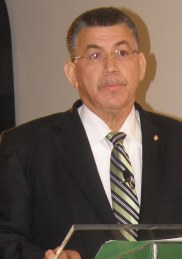
Bush criticizes “roadblocks”
 (CNS): The Cayman Islands’ premier expressed his frustrations this week at what he said were bureaucratic roadblocks to the solutions that he was trying to put in place to address the country’s fiscal situation. He also criticized the opposition for derailing the sale of the Government Office Accommodation Building and the “bloggers” for hurting the Cayman Islands. Speaking at a press briefing on Monday, McKeeva Bush also said that he had been told it was too much of a security risk for him to meet the people at what was the planned opposition march over the GOAB sale, which was why he chose to calm the situation by stopping the proposed divestment.
(CNS): The Cayman Islands’ premier expressed his frustrations this week at what he said were bureaucratic roadblocks to the solutions that he was trying to put in place to address the country’s fiscal situation. He also criticized the opposition for derailing the sale of the Government Office Accommodation Building and the “bloggers” for hurting the Cayman Islands. Speaking at a press briefing on Monday, McKeeva Bush also said that he had been told it was too much of a security risk for him to meet the people at what was the planned opposition march over the GOAB sale, which was why he chose to calm the situation by stopping the proposed divestment.
The premier also lamented the fact that he did not think he had the backing of the civil service to divest the building. “When we heard the threats that were coming about it we had to take it off the table,” the premier said. “But people now have to understand that we have to find the money to build it”
Bush said that government was concerned about the threat of a serious demonstration and he had to make a decision to calm the heat. He added that he had had enough of finger pointing and blaming as people tried to sandbag government in its attempts to address the fiscal difficulties. The premier also warned, however, that the decision was not necessarily a permanent one and that the building could still be used in some form of PFI or public private partnership initiative to enable the government to use the building as an asset instead of being faced with the liability of paying for finishing it.
Taking aim at the civil servants, he said, “I am not the sort of person to get disheartened easily but the stumbling blocks and attitudes around me are preventing me from doing what the people elected me to do.” The premier noted that the sooner he could do what he needed to the sooner the country would be better off and begin to get out of the economic slump.
“The constitution says civil servants must carry out government policies and not their own feelings,” he warned, adding that government was struggling with bureaucratic issues and what he said was politics within the ranks of the civil service.
CNS was told by some government workers, however, that those in the public sector are not placing roadblocks before government but that civil servants are obligated to follow the law. Whatever moves are made by the government of the day to implement policy, they have to be done in accordance with existing legislation and regulations. “It may seem like stumbling blocks or bureaucracy for the sake of it but things have to move through the correct channels and all politicians are frustrated by the constraints of laws and regulations,” said one experienced civil servant.
The premier has now stated on a number of occasions that the roadblocks are getting in the way of the specific projects he is currently trying to get on track, including the sale of the sewage system and the port.
The premier also accused the "bloggers" of causing problems for government and the country as he said they were undermining the goal of attracting inward investment. “The bloggers are hurting us,” he said. “I complain and people think I don’t want them to have their say but when people say these things this is ruining business. I am telling you it is doing us no good as there is no education in what is being said. The bloggers must understand this.”
Bush said he was not trying to hurt anyone but that he must tell truth and accused the opposition of using the blogs. He added that he hoped members of the People’s Progressive Movement would start to see the gravity of the situation.
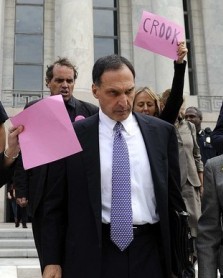
Lehmam collapse own fault
 (Los Angeles Times): The bankruptcy of Lehman Bros in September 2008 is widely seen as the event that kicked the financial meltdown into high gear. So it makes sense that the report released last week by Lehman’s bankruptcy examiner should stand as the one indispensable analysis of how Wall Street almost brought the U.S. economy crashing down. The report should put to rest the claims by ex chair Richard Fuld that it was destroyed by rumours, short selling, stock manipulation and an unwarranted loss of confidence by clients and trading partners. In 2,200 pages, the examiner, Anton R. Valukas, lays out the truth in all its ugly glory: Lehman’s fall was 100% its own fault.
(Los Angeles Times): The bankruptcy of Lehman Bros in September 2008 is widely seen as the event that kicked the financial meltdown into high gear. So it makes sense that the report released last week by Lehman’s bankruptcy examiner should stand as the one indispensable analysis of how Wall Street almost brought the U.S. economy crashing down. The report should put to rest the claims by ex chair Richard Fuld that it was destroyed by rumours, short selling, stock manipulation and an unwarranted loss of confidence by clients and trading partners. In 2,200 pages, the examiner, Anton R. Valukas, lays out the truth in all its ugly glory: Lehman’s fall was 100% its own fault.
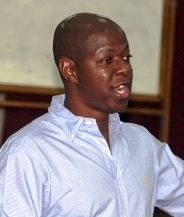
Cayman bank, directors named in NYU’s law suit
 (CNS): Fortis Bank (Cayman) Ltd, Fortis Prime Fund Solutions ,the managing director of dms management Don M. Seymour (left) and dms director Aldo Ghisletta have all been named in a law suit filed by New York University in the Supreme Court of the State of New York. The university is seeking damages from Gabriel Capital Corporation and J. Ezra Merkin who managed the education institution’s fund and which it claims in violation of duties owed to NYU turned over a substantial sum of the fund to Bernard L. Madoff. According to legal documents NYU’s money was invested in Ariel Fund Limited which was incorporated in the Cayman Islands.
(CNS): Fortis Bank (Cayman) Ltd, Fortis Prime Fund Solutions ,the managing director of dms management Don M. Seymour (left) and dms director Aldo Ghisletta have all been named in a law suit filed by New York University in the Supreme Court of the State of New York. The university is seeking damages from Gabriel Capital Corporation and J. Ezra Merkin who managed the education institution’s fund and which it claims in violation of duties owed to NYU turned over a substantial sum of the fund to Bernard L. Madoff. According to legal documents NYU’s money was invested in Ariel Fund Limited which was incorporated in the Cayman Islands.
Fortis Bank is cited as a shareholder of Ariel, Fortis Fund Services serves as Ariel’s registrar and both Seymour and Ghisletta as directors.
The university is claiming damages against the parties listed on the suit as well as an order restraining the continued dissipation of Ariel funds and NYU’s interest and the appointment of a receiver, in connection with its investment through its endowment fund in Ariel Fund Limited.
The law suit states: “Unbeknownst to NYU, and in breach of agreements made by and among Ariel, Gabriel Capital Corporation (“Gabriel”) and J. Ezra Merkin (“Merkin”), and in violation of duties owed to NYU and Ariel, a substantial portion of Ariel assets were turned over to Bernard L. Madoff (“Madoff”), converted and lost, as part of a massive “Ponzi scheme.” Defendants Gabriel and Merkin through their gross negligence, recklessness, misrepresentations, and self-dealing, aided and abetted Madoff’s conversion of Ariel assets and induced NYU to retain its interest in Ariel, and proximately caused losses to Ariel and NYU. Ariel continues to report obligations to Gabriel (and Merkin) of $323 million as “deferred incentive fees,” for compensation based upon a percentage of illusory assets (and profits) transferred to Madoff. Based upon the wrongdoing alleged herein, this debt should be set aside and the “Advisory Agreements” pursuant to which fees were paid and deferred should be rescinded.”
The document sets out the details of NYU’s claim and how it became involved with Merkin, the establishment of Ariel and the allegation that money was given to Madoff against the express wishes of the university and that the fund mangers had then tried to conceal the fact that money had been given to Madoff. The college alleges the managers were reckless, breached their contract and had committed fraud as well as a number of other violations.
“Upon information and belief, Merkin simply turned over these assets to Madoff for management, without performing any due diligence or monitoring of the funds invested. As a result of the largest “Ponzi scheme” in history, these monies have been stolen. Gabriel and Merkin caused these assets to be transferred to Madoff despite numerous “red flags” warning of the dangers and imprudence of investing with Madoff,” the suit states.
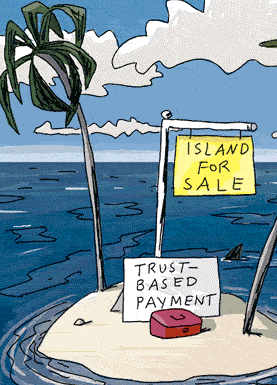
Report urges public asset sale
 (CNS): Having rejected any form of taxation or sustainable income generation, James Miller III and his co-authors David Shaw and Kenneth Jefferson have recommended the government raise much-needed revenue from the sale of assets and privatization of some government services and companies. Their recent report reviewing the state of government finances states that the Port Authority, the airport, Water Authority, UCCI, the Development Bank and the Stock Exchange as well as the Cayman Turtle Farm could all be privatized. The authors claim that such sales would not only bring in revenue but would also remove government’s subsidy or liability for those losing money.
(CNS): Having rejected any form of taxation or sustainable income generation, James Miller III and his co-authors David Shaw and Kenneth Jefferson have recommended the government raise much-needed revenue from the sale of assets and privatization of some government services and companies. Their recent report reviewing the state of government finances states that the Port Authority, the airport, Water Authority, UCCI, the Development Bank and the Stock Exchange as well as the Cayman Turtle Farm could all be privatized. The authors claim that such sales would not only bring in revenue but would also remove government’s subsidy or liability for those losing money.
While the premier has not yet said which of those assets he will be selling immediately, McKeeva Bush stated on Monday that his government will be implementing many of the report’s recommendations. He has also confirmed that private accounting firms have been engaged to examine divesting government assets and services.
According to Miller, substantial privatization would not have an adverse effect on the Cayman economy but improve it and the CIG needs to sell off assets tobridge the financial transition from excessive spending to a more healthy revenue growth. In the report Miller and his co-authors discuss in detail the potential value of a number of assets, including the Port Authority, which it states is valued at around $40 million. Going beyond government’s current goal of entering into a public-private partnership in order to build the cruise berthing facilities, the report suggests the privatization of cargo operations as well.
“Government‘s current plans to invest in an upgrade of the port‘s infrastructure to better serve the cruise industry could be made a part of any privatization/concession arrangement, thereby freeing government from the obligation to issue, service, and guarantee the debt,” Miller et al wrote. “Marine terminals have been the target of successful privatization efforts over the past decade or more, and several of these privatizations and concessions have led to substantial facility upgrades. In the US, Ports America Outer Harbor LLC will upgrade and operate 5 container berths in the Port of Oakland through a 50-year concession, and total investment by the company is expected to be near $150 million.”
The report says many port privatizations have occurred through long-term concessions, where private entities take over operations for a defined period of time then agree to a series of investments to improve service and capacity. “In return, the private business receives all or some of the fees earned at the facility for which it is responsible,” the report stated. “Given government’s current fiscal situation, the advantages to the economy … and the expected costs of upgrading the port‘s cruise-ship capacity and convenience, we recommend that government move quickly in issuing a Request for Information to interested and eligible parties, stating the level of responsibility it is looking to divest, the potential scope of revenues, the infrastructure upgrades required, and the time frame expected.”
Miller also recommended selling the airport as he says there is an active global market for airport acquisition. He notes, however, that the Cayman Airport Authority is technically operating at a loss so it would be difficult to calculate its value, but estimating that Owen Roberts serves around 800,000 passengers per annum and by applying a low rate of $25 per passenger because of the losses would result in a valuation of CI$16.5 million. In addition to the proceeds, the report noted, by selling Owen Roberts government would save an additional CI$8.7 million per year that it now provides as an annual subsidy payment.
“In the end, the sale price would be based upon such factors as the age of the airport‘s many infrastructure components, conditions that may be included in the sale, regulation of fees, labour agreements, and future projections of the Island‘s business and tourism markets. The early release of a Request for Information may be the effective way of discovering investor interest and potential valuation,” the report said.
On Monday Bush expressed his interest in entering to a private finance initiative to enhance Owen Roberts and build the new runway but he fell short of stating that he would be willing to sell the airport. He noted that Terminal Five at Heathrow was one of the best airport facilities he had seen and it had been built using private cash. Bush also said that the UK had expressed concerns about the potential risks relating to PFIs, but was not necessarily against the use of this method of financing.
“They said that their main concern is that there is a proper feasibility and cost benefit analysis carried out and that the process is transparent for each project,” the premier added.
In the report Miller lists seven government companies and authorities that cold be sold, six where government subsidies should be phased out, including the Health Services Authority and Cayman Airways, and 16 where at the very least there should be increased competitive contracting of the services offered.
As many of the 25 government-owned enterprises are involved in commercial activity that is typically performed by for-profit private businesses and they all present the potential for some for of privatization, the report states. Cayman Airways should have its current subsidy reduced inequal increments over the next three years, along with the National Insurance Company, the National Museum, the Health Services, National Housing Development Trust, and the Public Service Pension Board, to eliminate the more than $180 million government currently spends subsidising these entities.
Acquitted man denied bail
(CNS): Following the surprise decision on Monday by the court of appeal to overturn the not guilty verdict handed down by the Grand Court to Josue Carillo Perez and order a re-trial, the acquitted man has also been denied bail. Anthony Akiwumi, (left) Perez’s defence attorney is still pursuing the release of his client on the electronic monitoring system, as he confirmed that he will be taking this case to the Privy Council. Akiwumi pointed out that he is not aware of any case in the Commonwealth where a man who went through the full trial process, was acquitted of the crime then was re-arrested and had to face the possibility of a retrial. (Photo courtesy of News 27)
Perez was found not guilty in October of last year by Justice Roy Anderson after a judge alone trial lasting more than four weeks of the murder of Martin Gareau. However, under an amendmentto the Court of Appeal Law the crown appealed the verdict on the grounds that the judge had used the word “enhanced” at one point in his ruling suggesting that he had directed himself to raise the burden of proof, that he had speculated about what might have happened and had failed to explain his doubts to the guilt of Perez all errors in law.
Despite the observations of the defence that the judge had directed himself of the need to be sure of guilt and that it is “impossible to be surer than sure,” the three appellant judges found in favour of the crown and ordered a retrial and the controversial issue of double jeopardy.
Akiwumi stated that he had made an application to stay all proceedings in the Cayman Islands Grand Court in order to take this decision before the Privy Council to prevent his client having to face the power of the state all over again without any new evidence or changes to the case.
The defence attorney also raised his concerns about the impact of the 2006 changes to the court of appeal law. “Society has sleepwalked through the introduction of thislegislation the consequences of which do not become apparent until a case such as this,” he said. “Here we have a man who has been acquitted of the crime of murder who is now put in jeopardy by the order of a retrial by the court of appeal.” Akiwumi told CNS that given the circumstances it may be up to the Privy Council to right the ship for is client.
The legislative changes were reportedly made by the AG’s office in order to address prosecution cases which had been thrown out of the Grand Court part way through allowing the crown to restart a trial but this is the first time the legislation has been used to overturn a verdict where an accused has been found innocent by the court.
As this is also a murder case Perez was immediately taken into custody a move that was facilitated by the fact he had voluntarily attended the court of appeal hearing. The crown asked and was granted a warrant for his arrest on the basis that Perez is a Honduran national and that the flight risk was enhanced by the fact that he was to face a second trial.
Perez was charged with the murder of Canadian national Martin Gareau whose badly beaten body was discovered in the garage of his Beach Bay home in May 2008.
See Akiwumi interview on News 27